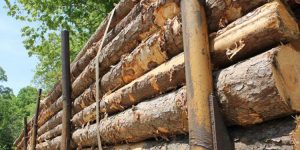
The report, entitled ‘The Role of Forests in the Green Economy Transition in Africa,’ calls for greater incorporation of the predominantly informal forest sector into national planning and accounting. This will improve the efficiency of the sector while encouraging sustainable forest resource management and helping to accommodate the increasing demand for forest products.
About 35% of Africa’s soil, forests and woodlands play a very important role in its economy, which is not completely represented in official statistics. Economic policymaking continues to focus mainly on the formal timber industry, which contributes less than 1% to the Gross Domestic Product ( GDP) of the continent.
Meanwhile, according to the UN Food and Agriculture Organisation (FAO), the largely informal charcoal and fuelwood industry accounts for 90 percent of timber consumption in Africa. It contributes an estimated 2% of the continent’s GDP and hires almost 5% of its population. Forests make important contributions to GDP in other fields by delivering critical environmental services, such as carbon storage, watershed security and biodiversity conservation.
The study recommends a policy package that could lead to stronger incorporation of forests into green economic planning. Resolving ambiguous forest resource rights, determining biodiversity products and services, and improving local control and participation by collaborating with the informal sector could all precipitate the continent’s transition to a green economy.
Drawing on experiences from Cameroon, Ethiopia, Ghana, Kenya, Mozambique and South Africa, the study demonstrates best practices and lessons learned through the execution of various forms of interventions. For example, the introduction of legal management plans in Cameroon has contributed to an 11 percent decrease in harvesting intensity in certain regions. In another case, Kenya has adopted legislation enabling associations of charcoal producers to apply for licenses to extract wood fuel and manufacture charcoal.
Policies and legal frameworks governing wood production and utilization in Africa aim at ensuring sustainability, enhancing supply and curbing high and rising demand so as to attain and maintain surpluses in the future. These interventions include promoting tree planting through capacity development and incentives, reduction of wasteful processing and utilization and streamlining research recommendations and effective monitoring in forestry development. Sustainable timber trade can be used to accelerate economic empowerment for urban and rural development, and enhance the security of energy supply.
